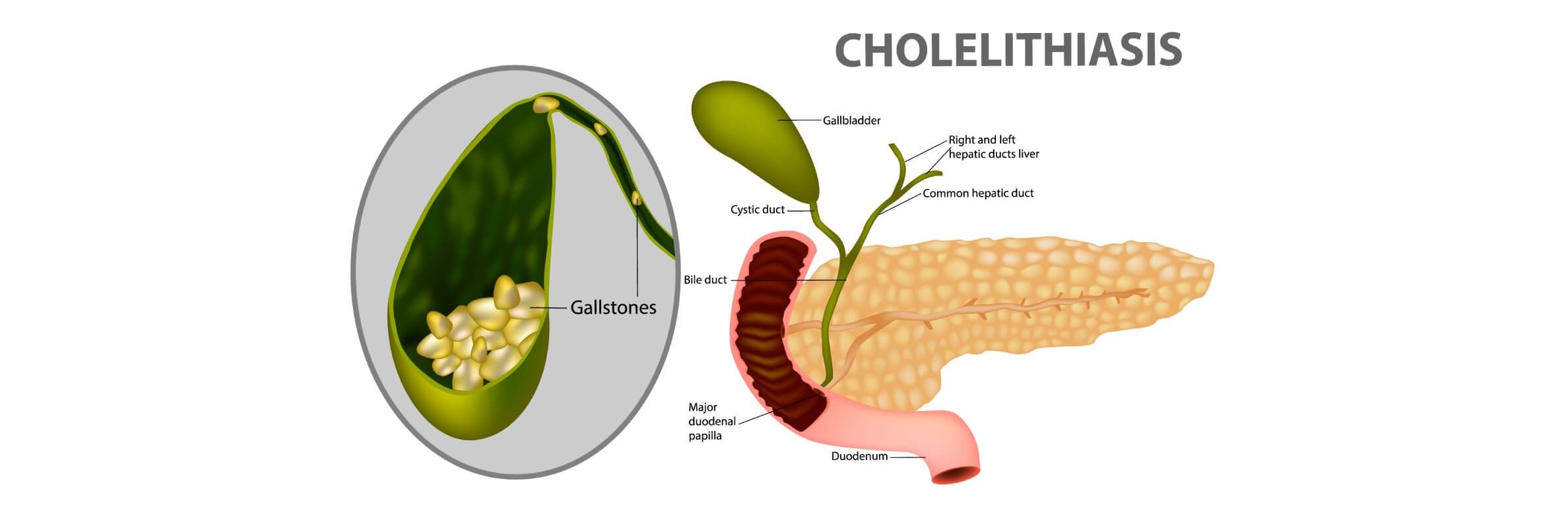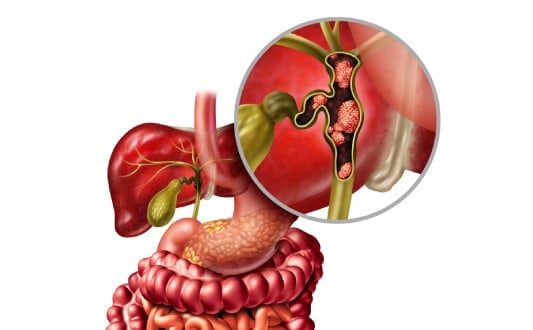Cholangiolithiasis is a common manifestation of the gallstone disease. Stones inside the gallbladder are present in 16% of the adult population. In 15% of cases the calculi are also revealed inside the bile ducts. This condition is very dangerous because it causes a number of complications, such as:
- Mechanical jaundice
- Purulent cholangitis
- Biliary pancreatitis
Many cases require emergency surgical intervention. There are several types of surgeries, which allow doctors to remove bile duct stones.
Content
Types of operations
Nowadays, in all developed countries preference is given to minimally invasive surgical interventions on the gallbladder and ducts. The operative approach is performed in one of the following ways:
- Through the abdominal wall
- Through the gastrointestinal tract
The access through the abdominal wall can be laparotomic, minilaparotomic, or laparoscopic. Laparotomy means that an incision is made in the abdominal wall. Such type of surgery is rarely used. It is used either in countries with poorly developed medicine, or when, for any reason, it is impossible to carry out the laparoscopic access. These reasons may be the following:
- Adhesive processes
- Significant infiltration in the area of gallbladder and ducts
- Sclerotic changes in the gallbladder
- Significant changes in the surrounding liver tissue due to cirrhosis, echinococcosis
- Fistulas (pathological connections of the gallbladder with abdominal cavity or adjacent organs)
- Biliary tract sclerosis
In these cases, the minimally invasive surgery may be complicated, or there is a high risk of the biliary tract damage. Therefore, the intervention is carried out in the conventional manner.
In other cases the laparoscopy is performed. A doctor inserts the camera and surgical instruments through the minimal incisions. He controls tools with the help of manipulators and receives a view thanks to the lighting, camera, and the image on the monitor.
All hospitals in Western countries use endoscopic retrograde operations, with the access through the gastrointestinal tract. It is called "transpapillary" because a doctor inserts the instruments through the major duodenal papilla. The bile ducts open into the duodenum. A doctor enters through it into the biliary tract, and then performs all the necessary manipulations with the help of a video camera.
A doctor enters the large duodenal papilla in one of two ways:
- Papillosphincterotomy, which means dissection
- Papillary sphincter dilation, which means widening
Further, in each case doctors individually decide how to remove stones. Lithoextraction (extraction of stones) or lithotripsy (their destroying) can be carried out. It depends on the size and density of the stones. If necessary, the stones are destroyed with the help of mechanical, electrohydraulic method, or by means of laser.
Benefits of treatment in Germany
Doctors in German hospitals are highly qualified. Therefore, they perform transpapillary surgery in order to remove gallstones in the ducts, even in complex cases when a patient has the following conditions:
- Part of the stomach was removed
- Inflammation of the major duodenal papilla
- Cholecystoduodenal fistula is present
- Inconveniently located papilla
- Signs of adenoma or diverticulum are present
If you undergo treatment in Germany, the risk that a doctor will decide to go simpler way and perform laparotomic operation is zero. Minimally invasive interventions always have higher priority because they are less traumatic for a patient, carry lower risks, provide easier postoperative period, and cause significantly less complications. Moreover, during the operation through the papillary orifice, there are no scars on the abdominal wall.
Safety of the operation also has great importance. Despite the fact that endoscopic transpapillary intervention does not imply dissection of the anterior abdominal wall, this manipulation carries certain risk of complications, such as:
- Hemorrhage occurs in 2-3% of patients
- Inflammation of the bile ducts occurs in 1-3% of patients
- Perforation of the ducts during the surgery occurs in 0.5-2% of cases
- Acute pancreatitis occurs in 1-10% of cases in different hospitals
Risk of complications depends on the skills of surgeon, technical equipment of the medical facility, surgical technique, and quality of the postoperative management. Success rates vary significantly across the hospitals. This is the main reason why people go to Germany for this operation. Indeed, in German hospitals, such factors, as risk of complications and mortality of patients are much lower.
Late complications which significantly impair patient’s quality of life are also possible. Statistics of their occurrence differs significantly, depending on where and how the person has received treatment. Risk of complications can range from 6 to 24% in different hospitals. The main of them are:
- Sphincter of Oddi dysfunction
- Duodenal-biliary reflux (movement of the small intestine content into the bile ducts)
- Chronic cholangitis
- Relapse of cholelithiasis (stone recurrence)
While accessing the bile ducts, widening of the sphincter (dilation) is often used in Germany instead of its dissection. This type of intervention is more preferable. It carries fewer risks of long-term complications. After this operation functional state of the sphincter apparatus is always preserved. The method can be applied even in large calculi, but in this case the lithotripsy (breaking) with consequent extraction of the stones in parts is required.
Organization of treatment in Germany
In order to extract stones from the bile ducts you can visit one of the German hospitals. You do not need to search for a hospital independently, negotiate with the administration, establish communication with doctors, look for translators, and solve a number of organizational issues. All this can be done for you by the company Booking Health.
We will organize treatment in the best German hospitals for you. Our services are:
- Choosing a hospital which specializes in minimally invasive surgical removal of gallstones and shows the best results according to the medical statistics.
- The treatment program is elaborated according to your diagnosis and concomitant diseases. We will translate the previous diagnostic data into German, so you will not have to undergo the same examination again.
- The diagnostics and treatment will be carried out on convenient for you dates, and the waiting time for the operation will be reduced.
- Treatment in Germany is much cheaper due to the lack of overpricing for foreign patients; costs for the treatment will be reduced up to 50%.
- We provide monitoring of the program at all its stages, as well as the control of your invoices. All the unclaimed funds will be returned to your banking account after the program completion.
- Help in forwarding of medicines abroad.
The company Booking Health provides a high level service. We will help you to prepare the documents, book plane tickets and a hotel, provide an interpreter and support you during the entire period of staying in Germany.
Choose treatment abroad and you will for sure get the best results!
The Booking Health portal presents 81 German clinics specializing in endoscopic removal of bile duct stones (ERCP and stones retraction)
Authors:
The article was edited by medical experts, board certified doctors Dr. Nadezhda Ivanisova, Dr. Sergey Pashchenko. For the treatment of the conditions referred to in the article, you must consult a doctor; the information in the article is not intended for self-medication!
Sources:
Read:
Why Booking Health - questions and answers
How to make right decision when choosing the clinic and specialist
7 reasons to trust to the rating of clinics on the Booking Health portal
Don't know where to start?
Contact Booking Health







